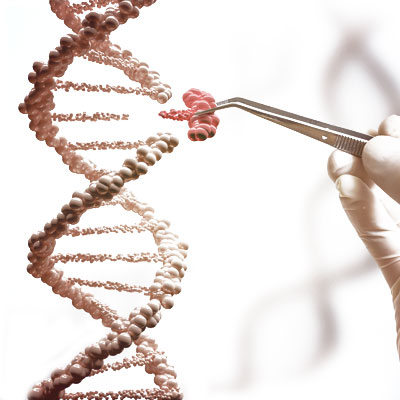
Nutrigenomics health management plan
Health Total is one of the industry leaders in Nutrition and Health Management services.
Carrying forward the legacy of two decades of exploring newer frontiers in nutritional science, Health Total presents Nutrigenomics, another feather in its cap.
Nutrigenomics is a multidisciplinary science, which studies how:
- Our food interacts with our genes
- Our genes determine our response to our food or certain chemicals found in our food
Nutrigenomics helps us design the right diet and daily routine to bring about long-lasting health and wellness. It is a science, which possesses the potential to prevent, alleviate or even treat certain chronic diseases by making simple and slight changes to what we eat.
The Human Genome
The complete mapping of the human genome, first announced in 2003, has been one of the greatest technological accomplishments of the past 100 years. This has given scientists a better understanding of the mechanisms pertaining to health issues at a molecular level, changing clinical diagnosis and health management.
The ‘Gene’ and ‘Diet’ Connect

In the recent years, The Genome Project has revealed that individuals show variable responses to a diet. One of the main reasons behind this is the variations in DNA that have a profound effect on the nutritional requirements, metabolic efficiency, and an individual’s ability to lose and maintain weight.
Optimized gene-based solutions

DNA based analysis provides individuals with a great opportunity to apply gene-based results to their daily lifestyle. Moreover, they can manage various health and weight issues through planning of meals and exercise based on genetic differences in metabolism under expert guidance.
Backed by science

Your genes are the blueprint of your body. Knowing your DNA and your genes is the most efficient way of knowing oneself. From approximately 25,000 identified human genes that produce proteins to control our biological processes, we have identified a handful of genes associated with:
- Weight loss resistance
- Body mass index (BMI)
- Muscle mass
- Body fat
All of these parameters meet the stringent criteria for utility in genetic screen tests.
A summary on Nutrigenomics
The following five points clearly summarize the key aspects of Nutrigenomics as a science:
- Common dietary chemicals act on the human genome, either directly or indirectly, to alter gene expression or structure.
- Under certain circumstances and in some individuals, diet can be a serious risk factor for a number of diseases.
- Some diet-regulated genes and their normal/common variants are likely to play a role in the onset, incidence, progression and/or severity of chronic diseases.
- The degree to, which diet influences the balance between healthy and disease states may depend on an individual’s genetic makeup.
- Dietary intervention based on knowledge of nutritional requirement, nutritional status, and genotype (individualised nutrition) can be used to prevent, mitigate, or cure chronic disease.
From the above, it is quite clear that what we eat determines how our body will respond to it. Further, food can be a causative agent for the onset of many diseases and disorders through a variety of ways. Nutrigenomics holds a good proposition of ‘personalised health’. We have convincing scientific proof that no two human beings will react to a food (or a chemical contained in it) in a similar manner. We can use this science and its ever-expanding library of research to better understand your genetic make-up vis-à-vis your diet and its effect on your health.
Who should go for a Gene Test?Anyone, who is oriented towards prevention of health issues NOW, rather than putting efforts to manage health at a later stage, can go for a gene test.
We have solutions
We have an array of solutions to offer, which will help you manage health as well as weight-related issues. For those looking out for weight-related issues, gene-based weight management plans can provide insights into:
Responsiveness to diet and exercise interventions
Individual energy adaptation needs
Predisposition to slow and rapid weight gain
Optimal macronutrient distribution for effective weight loss
Optimal exercise intensity for weight loss
The degree to which we react to the amount and type of fat in our body
